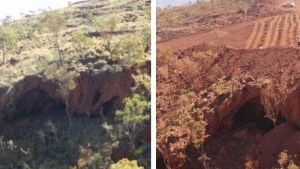China: harmful air pollutants have exceeded levels previous to the Covid-19 crisis. The data was released by Crea, the Center for Research on Energy and Clean Air.
The results of Crea’s study are not encouraging. In February, air pollutant levels in China plummeted during the lockdown and were at their lowest in early March. Now they have now surpassed pre.pandemic levels. The boom in pollutants appears to be driven by industrial emissions as pollution is increasing in areas where coal combustion prevails. Ozone levels are also worrying.
According to the study, this increase in emissions cannot be attributed to meteorological factors:
By monitoring weather conditions, national average concentrations of PM2.5, SO2 and ozone were higher in the past 30 days than pre-crisis levels, while NO2 concentrations were at the same levels as before the crisis. NO2 increased less in densely populated urban areas than in the rest of the country, indicating that those places where transport is the main source of pollution had a smaller increase. PM2.5 and NO2 increased more in places with higher SO2 levels. In other words, areas where coal combustion is present.
SO2 is related to coal combustion. PM2.5, NO2 and ozone are related to power plants, industry and transportation.
The coronavirus lockdown has had an important impact on the use of fossil fuels in China and consequently on air quality. In the 30 days following the end of the Chinese New Year holidays (February 3), the national average of PM2.5 had fallen by 33% while NO2 levels had even fallen by 40% compared to the same post-holiday period of 2019. Also CO2 emissions had fallen by 25% due to the reduced use of coal and oil.
Breaking: China's air pollution overshot pre-coronavirus levels for the first time in the past month, as power plant coal consumption and metals and cement output increase – CREA briefinghttps://t.co/J51mbS38B1 pic.twitter.com/Jujnj5NF6y
— Centre for Research on Energy and Clean Air (@CREACleanAir) May 18, 2020
Unfortunately, the reasons for the increase in emissions are clear: emissions from power plants, industry and transport have all been increasing. Coal consumption in 5 major electricity companies in eastern China increased in early May for the first time since 2019 levels. Thermal energy production also increased by 1% in April, after dropping by 8% in March.
In most cases, China’s recoveries after severe periods of crisis have all been related to increases in the consumption of fossil fuels, air pollution and CO2 emissions. One of the best known is the 2008 incentive package which inaugurated an unprecedented wave of construction projects and consequently record levels of consumption of coal, cement and steel. The program culminated in terrible episodes of air pollution in the winter of 2012-13, known as “airpocalypse”.
As the study indicates:
Due to emphasis on GDP targets and on construction and manufacturing projects to hitthose targets, China’s recoveries have tended to be “dirty”, with negative economicshocks followed by surges in fossil fuel consumption, air pollution and CO2 emissions – themost well-known example is the 2008 stimulus package that ushered in an unprecedentedwave of construction projects and record levels of coal, cement and steel consumption.The stimulus programme culminated in the horrendous air pollution episodes of thewinter 2012-13, commonly known as the “airpocalypse”, around Beijing. Another worryingparallel to the current situation is the “SARS investment boom” started by the governmentin 2003 to offset the negative economic impacts of the SARS epidemic and resulting in asurge in pollution in the region surrounding Beijing.
—
Sources:
Energy and clean air










